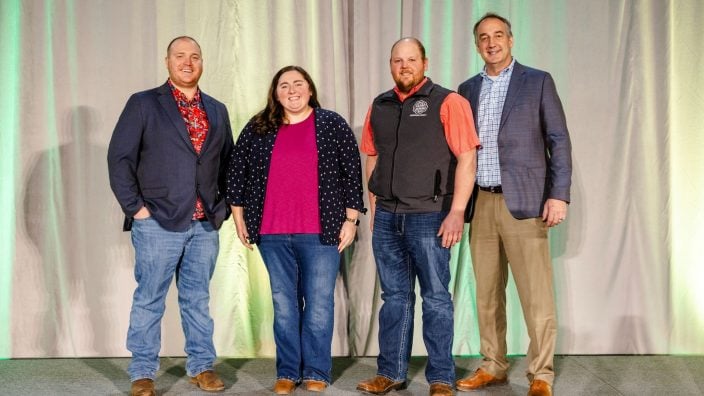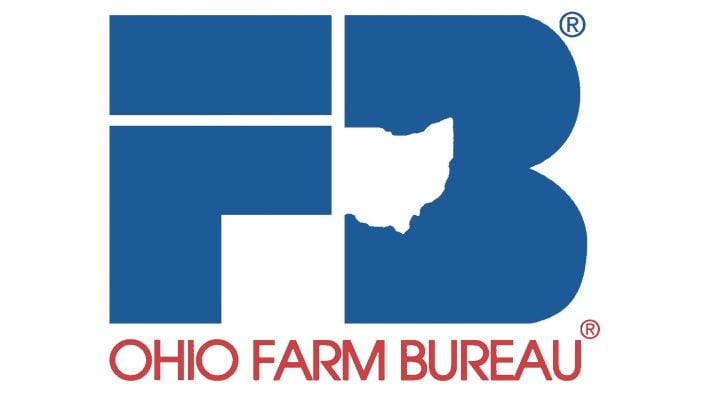Applications for Ohio Farm Bureau Health Plans now available
Members have three ways to apply: contacting a certified agent, calling 833-468-4280 or visiting ohiofarmbureauhealthplans.org.
Read MoreGov. John Kasich abandoned one of his most basic principles by announcing unilateral regulation of farming practices in an attempt to improve Lake Erie water quality. With no conversation with Ohio’s agriculture community, the Kasich executive order would include regulation of over 2 million acres in northwest Ohio.
Today’s executive order ignores the transparent and inclusive approach to the regulatory process Kasich promised with his “Common Sense Initiative.” Because the agricultural community was not included in the process, farmers are left with frustration, questions and uncertainty on both the process and implications of this order.
“We can’t even react to the specific regulations he’s proposing; we haven’t seen them,” said Adam Sharp, executive vice president of Ohio Farm Bureau.
Kasich’s order has no realistic recognition of the time nor the financial or educational resources required for farmers to comply. Regulations created under the order may conflict with multiple layers of existing regulation. There are also significant concerns about the science applied, the processes through which the order will be enacted and the specific authorities of the multiple state agencies charged with carrying out the order.
Sharp said Farm Bureau will take the rare step of filing a formal public records request in order to gain clarity on some of these issues.
“We’re also curious why the order deals with only agriculture and not other pieces of the water puzzle, especially since the administration has prioritized other water quality initiatives instead of farm conservation programs,” Sharp said.
The Kasich administration said it has invested more than $3 billion to improve Lake Erie water quality. But an examination of the expenditures, reported by Cleveland Public Broadcasting Station WCPN, found that only 1 percent of that money was used to address agriculture’s portion of the water quality challenge.
“If we weren’t a priority for state resources, why are we a priority for state regulation?” Sharp asked.
Farm Bureau supports the actions of the Ohio House and Senate in passage of Clean Lake 2020, which became law today. It provides funding of up to $20 million in a targeted phosphorus reduction fund, $3.5 million to support soil testing and the development of nutrient management plans, among other provisions, recognizing the complex needs of farmers in the process.
Working with the legislature – and the administration – is always the preferred approach to address agricultural concerns.
This is a news release for use by journalists. Questions should be directed to Joe Cornely, 614-246-8230.


Members have three ways to apply: contacting a certified agent, calling 833-468-4280 or visiting ohiofarmbureauhealthplans.org.
Read More

Ohio Farm Bureau members met one-on-one with state legislators and staff to discuss policy priorities impacting Ohio’s farms and rural communities.
Read More

Legacy nutrient deductions enable new farmland owners to claim deductions on the nutrients within the soil on which healthy crops depend.
Read More

Farmers, agribusinesses and community members are encouraged to nominate their local fire departments for Nationwide’s Nominate Your Fire Department Contest through April 30.
Read More

Introduced by Sen. Paula Hicks-Hudson, SB 120 would establish the Urban Farmer Youth Initiative Pilot Program.
Read More

Gases, vapors, and fumes can all create risk. How can we measure and protect ourselves from them?
Read More

The Ohio Farm Bureau’s Young Agricultural Professionals State Committee has named its 2026 leadership and the individuals who will be serving on the state committee for 2026-2028.
Read More

The Ohio Farm Bureau Foundation has multiple scholarships available to Ohio students from rural, suburban and urban communities who are pursuing degrees with a connection to the agricultural industry.
Read More

With 100% bonus depreciation now permanent, farmers can deduct the full cost of a new agricultural building in the year it’s placed in service.
Read More

Lincoln Deitrick was named the Outstanding Young Farmer, Denver Davis won the Excellence in Agriculture Award, and Margaret Houts won the Discussion Meet.
Read More